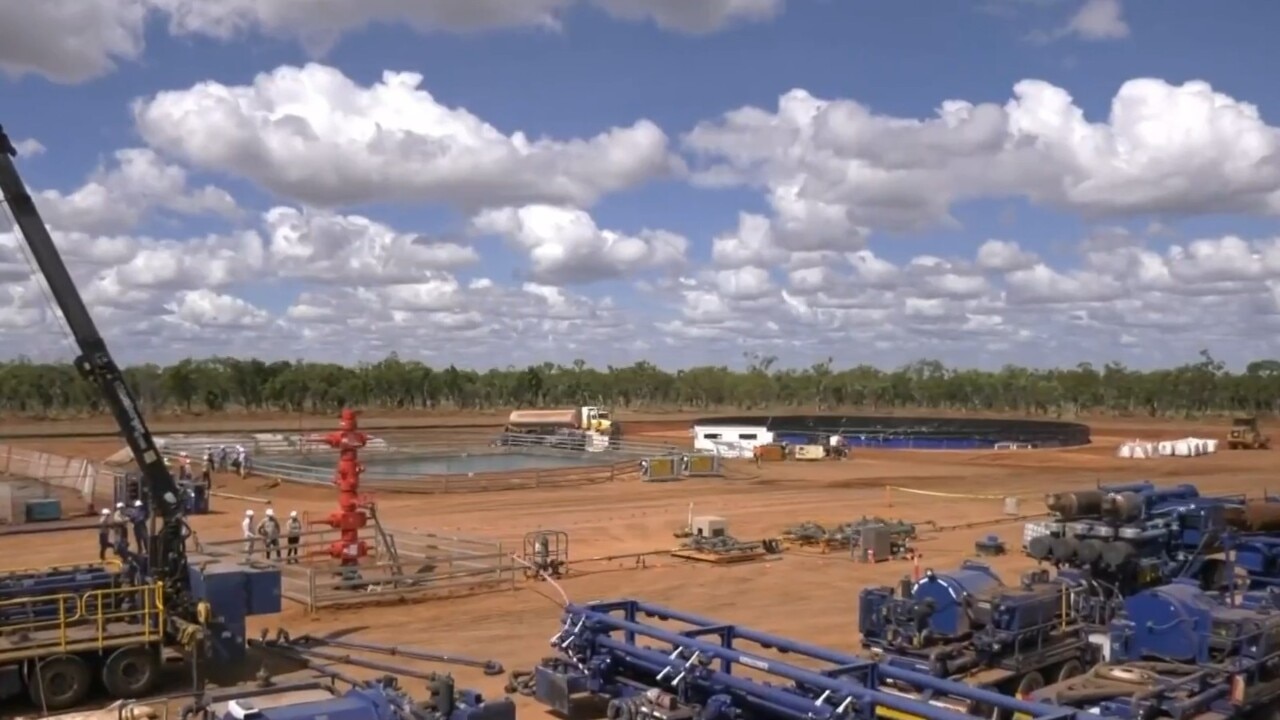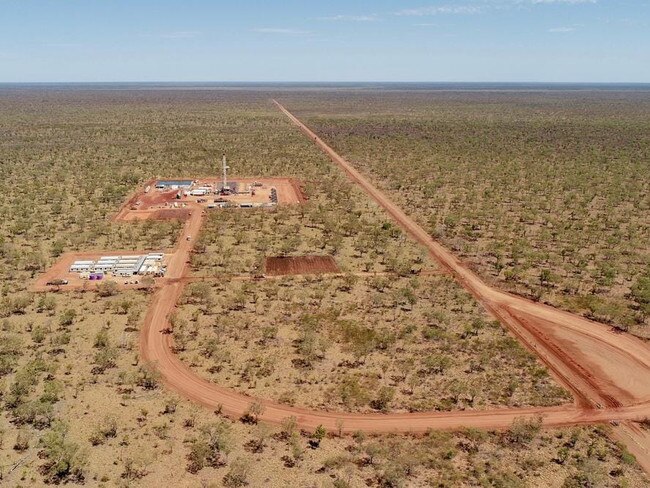Middle Arm Carbon Capture Hub to position NT as leader in manufacturing, low emissions energy
The Northern Territory has an opportunity to play a big part in the roll out of Carbon Capture, Utilisation and Storage. See the details.

Business
Don't miss out on the headlines from Business. Followed categories will be added to My News.
The Northern Territory has an opportunity to play a big part in the roll-out of Carbon Capture, Utilisation and Storage (CCUS) and to become a world-leader in low emissions energy.
It was an opportunity that was reinforced by Northern Australia Minister Madeleine King’s announcement awarding the INPEX-led Bonaparte CCUS Assessment Joint Venture acreage in the Petrel Sub-Basin just off Northern Australia.
The growing and important role that CCUS is playing in decarbonisation is well-recognised by the international energy community.
CCUS is a proven technology that the oil and gas industry has been using for 50 years; over the next decade there will be many more CCUS projects in Australia and the oil and gas industry will play a central role given our expertise in geological storage and large infrastructure projects.
We have the subsurface expertise, the geologists and reservoir engineers that can support the safe development of these storage sites.
Here in the Territory, plans for the CCS Hub at the Middle Arm precinct near Darwin will supercharge the local economy and position the Territory as a world-leader in manufacturing and low emissions energy.
We look forward to collaborating as an industry with governments on this exciting project that is set to create local jobs and help a raft of industries decarbonise.
It brings together all the unique elements that only our industry can deliver – reliability, technology and a commitment to regional benefits.
CCUS is not only an opportunity to reduce emissions during gas production but will be critical for some industry sectors including steel, cement and chemicals.
It can also facilitate our hydrogen industry, through leveraging our industry’s existing skills, expertise and commercial relationships, as well as existing technology and infrastructure.
Under the International Energy Agency’s Net Zero by 2050 scenario, almost 40 per cent of hydrogen in 2050 will come from natural gas utilising CCUS.
In fact, our trading partners who purchase our LNG today are likely to be the same partners who will buy our hydrogen tomorrow.
All this underscores the point that, contrary to some perceptions, the transition to net zero will expand the role for national gas while creating new opportunities for the industry.
One exciting new opportunity for the Northern Territory to develop its natural gas industry is the development of the Beetaloo Basin.
Research from Deloitte Access Economics found that developing the Territory’s substantial shale gas resources could create up to 6300 long-term jobs and generate up to $1bn in additional revenue for the Northern Territory Government over the next 20 years.
In fact, there are already local contractors and workers benefiting from the economic activity generated through exploration in the Beetaloo Basin.

Tens of millions of dollars of contracts have already been flowing into the NT courtesy of Beetaloo exploration as our members collaborate with local communities and traditional owners to manage this phase.
Critically, they are also ensuring this region’s important environmental assets are protected, fulfilling the verdicts of over a dozen inquiries, reviews and studies that have found any potential risks can be managed safely.
There is a lot of noise and wild claims about this issue but we must follow the science and I back the recent comments of the NT Deputy Chief Minister Nicole Manison when she warned that misinformation about the Beetaloo was a risk to getting the best outcome for Territorians.
One of our members, Origin Energy, spent $9.6m with NT businesses out of a $39m exploration program between March 2021 and February this year.
Fellow member Santos spent $60m with NT-based contractors and companies during last year to support operations across the Top End, spending with 45 separate organisations in areas including rental services, accommodation, civil contractors, engineering and supply services, haulage, environmental and cultural heritage.
Empire Energy has invested $46.5m in the NT, including $3.4m in taxes.
Just look at the small businesses spanning the NT already benefiting from this investment in the Beetaloo.
There’s Silver City Drilling in Alice Springs, Darwin-based Rusca Brothers, Arnhem Earthmoving and Mechanical, and KD Machinery Hire at Broadmere Station. These companies – and many others – are benefiting from one of the biggest economic opportunities the Northern Territory has seen.
It’s this sort of stimulus into communities across the NT that shows again how important the industry is to NT way of life, even before the Beetaloo ramps up into production in coming years.
The Beetaloo Basin has the potential to be as important economically to the NT as the great resource development regions of Queensland and Western Australia – delivering billions in public funding to build schools and hospitals; providing energy security to households and businesses; feeding existing export facilities; and potentially driving a manufacturing hub in this region.
And, as I have explained, it will also help natural gas decarbonise the world in the cleaner energy future. It is a bright future, and one in which we are focused on leading the way.




